The Akkadians were a remarkable people who lived thousands of years ago in Mesopotamia, a region located between the Tigris and Euphrates rivers. They are famous for creating the first empire in history, bringing many different city-states together under one rule. This was a groundbreaking achievement that shaped the way civilizations grew and worked together.
In this article, we’ll explore who the Akkadians were, how they rose to power, their culture, their amazing achievements, and what caused their empire to fall. Finally, we’ll look at how their influence can still be seen today. Let’s dive into their incredible story!
Who Were the Akkadians?
The Akkadians were a group of people who spoke a language called Akkadian, which is part of the Semitic language family. They settled in northern Mesopotamia and shared the land with the Sumerians, who lived in the south. While the Sumerians had their own language and culture, the Akkadians started to grow in power and influence over time.
The Rise of Sargon of Akkad
The Akkadian Empire began with a man named Sargon of Akkad, who is often called the first great ruler in history. Sargon started as a humble servant, but through his skill in leadership and battle, he became the king of Akkad. He didn’t stop there—he went on to conquer many Sumerian city-states, uniting them under his rule. Moreover, Sargon built a strong central government, something that had never been done before. He ensured the cities worked together and shared taxes and resources. This unity marked the beginning of the first-known empire in human history.
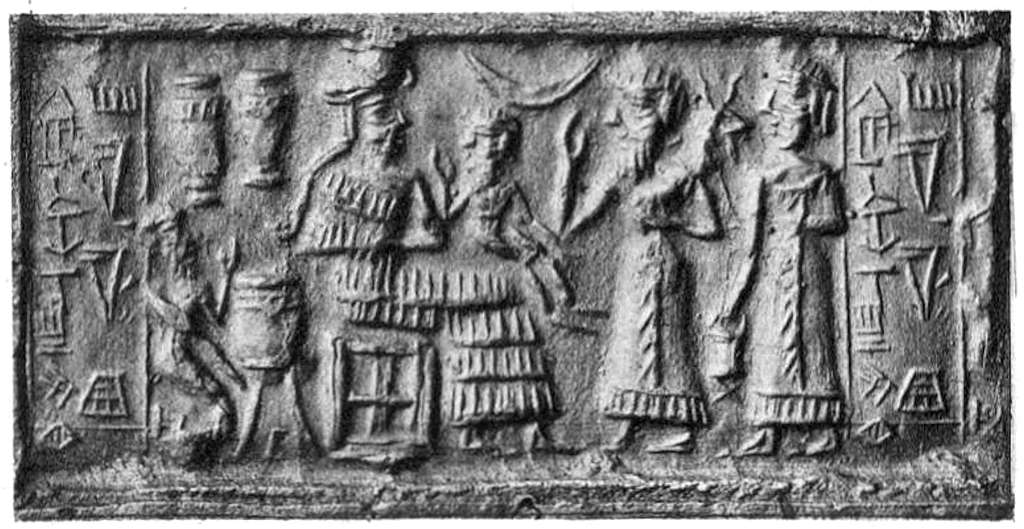
The Rise of the Akkadian Empire
Sargon’s leadership was key to the Akkadian Empire’s success. He built a powerful army that could protect their lands and expand their territories.
Conquests and Expansion
One of Sargon’s most important achievements was defeating the Sumerians, including the strong city of Uruk. Following this victory, he expanded his empire far and wide, from the Persian Gulf to the Mediterranean Sea. As a result of these conquests, Sargon created a system where loyal officials governed different parts of the empire. This helped keep everything organized and running smoothly. In particular, his centralized rule was a new way of managing an empire and became a model for later civilizations.
Culture and Society of the Akkadians
The Akkadian civilization was rich in culture, and their society had unique aspects that set them apart.
Language and Writing
The Akkadians communicated in a language called Akkadian, which became very important in their region. It was spoken by many people and was also used for official purposes like government and trade. To write, they used a special system called cuneiform. This system involved making wedge-shaped marks on clay tablets with a sharp tool. The Akkadians used cuneiform to keep records of many things, such as their laws, trade deals, and even stories about their gods and kings. These written records were very important because they helped people organize their daily lives and pass on knowledge to future generations.
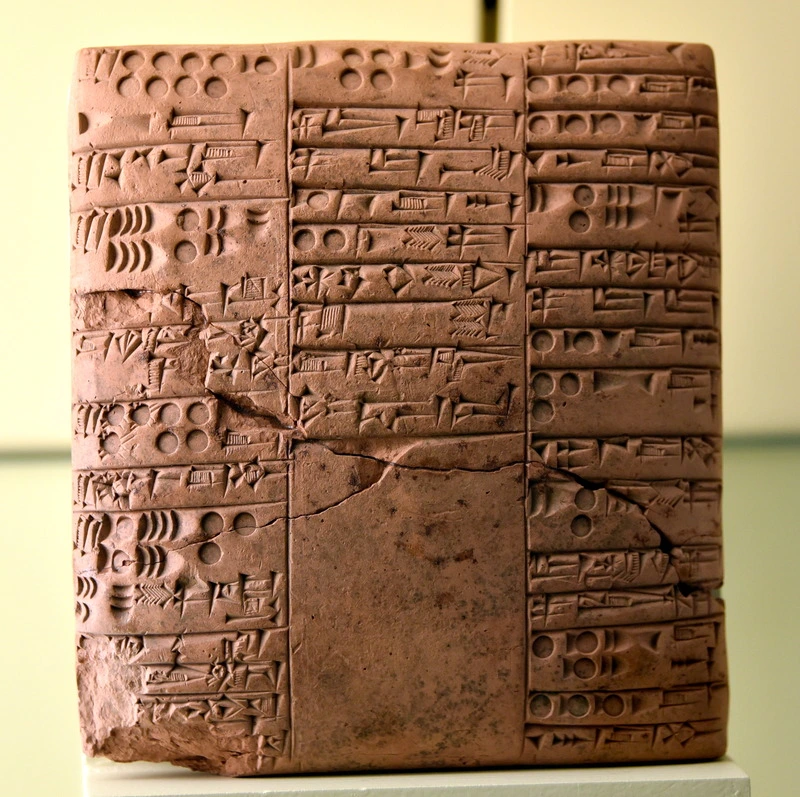
Religion and Beliefs
The Akkadians believed in many gods, similar to the Sumerians who lived before them. They thought their gods controlled everything in the world, from the weather to their daily lives. Some of the most important gods were Anu, the god of the sky, Enlil, the god of air and storms, and Ishtar, the goddess of love, beauty, and war. The Akkadians built large temples, called ziggurats, in their cities to honor these gods. These temples were not only places where people prayed and gave offerings to the gods but also served as important community centers. People would gather there during festivals, religious ceremonies, and other special events. Learn about Mauritanian Royal Shrine.
Art and Creativity
The Akkadians were famous for their amazing art, which showed their creativity and skill. One of their most unique creations was cylinder seals. These were small stones carved with detailed designs or scenes. People used them like stamps by rolling them over soft clay to leave an impression. Cylinder seals often depicted pictures of gods, animals, or important events. People used them to mark ownership or as a signature. Do you know about South Indian Cultures.
The Akkadians also made beautiful sculptures that told stories about their kings and gods. A great example is the Victory Stele of Naram-Sin, a tall stone carving. It shows King Naram-Sin as a strong and godlike leader. In the carving, he stands proudly above his enemies, who are defeated below him. This artwork was not just decorative; it also showed the power and achievements of their leaders, making it an important part of Akkadian culture. Their art admires people today for its detail and meaning.
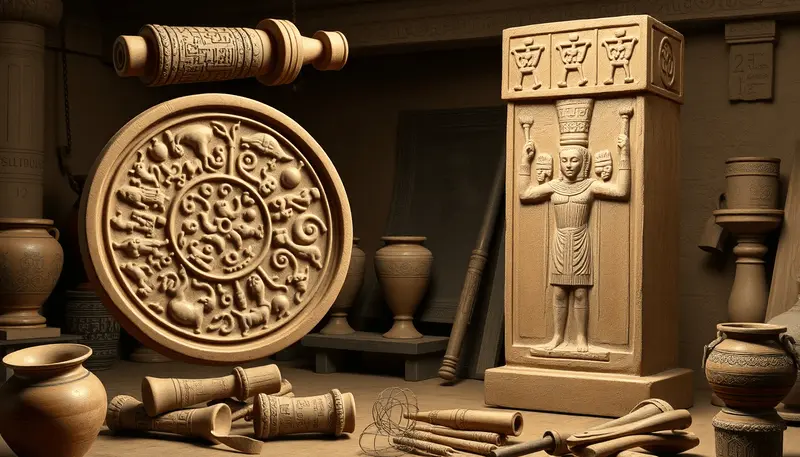
Achievements and Contributions of the Akkadians
The Akkadians made many contributions that changed the way people lived and worked.
Centralized Government
One of the Akkadians’ greatest accomplishments was creating a centralized government, which helped them manage their large empire. Sargon of Akkad, their famous leader, came up with a smart system to keep everything organized. He divided the empire into different regions and put governors in charge of each one. The governors made sure people followed the laws. They collected taxes and shared resources like food and goods fairly across the empire.
This system made governing such a large area much easier. It allowed the Akkadians to control distant cities and ensure that everyone contributed to the empire’s success. For example, governors collected taxes in one area and used them to support the army or build temples in another. With strong leadership in each region, Sargon kept his empire organized and powerful for many years. This idea of centralized rule was so effective that it influenced many later civilizations. It showed how important good planning and leadership are in running a large empire.
AkkadiansMilitary Innovations
The Akkadians were the first in history to have a standing army, which was a big achievement. A standing army means they always had trained soldiers ready to defend their empire at any time, even during times of peace. This differed greatly from other civilizations, which only gathered soldiers when they were about to go to war.
A standing army made the Akkadian Empire much safer because it could quickly respond to threats or attacks. It also allowed them to conquer new lands and expand their empire. With their army, they defeated many neighboring city-states and brought them under Akkadian control. The well-organized and skilled soldiers gave the Akkadians an advantage over their enemies. This powerful army helped the empire grow strong and become one of the most influential civilizations in ancient history.
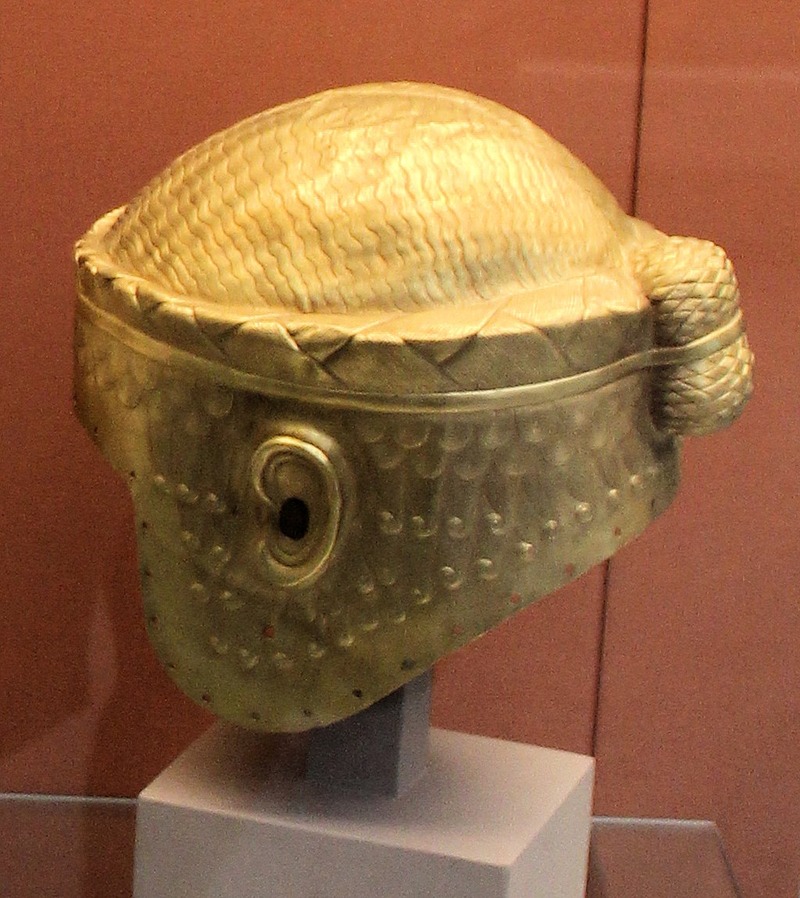
Akkadians Advances in Technology and Trade
The Akkadians made many improvements that helped their people live better lives. One of their important achievements was improving irrigation systems. These systems brought water from rivers to farms, allowing farmers to grow more crops even in dry areas. With better irrigation, the Akkadians were able to produce more food, which supported their growing population and made their empire stronger. The Colosseum in Greece is also the prove ancient advancement.
They also built extensive trade networks, which connected them to other regions. Through trade, they exchanged goods like metals, textiles, and spices with neighboring civilizations. For example, they might trade surplus crops for precious metals like silver or for luxury items like fine fabrics. These trade connections not only brought wealth to the empire but also helped spread Akkadian culture and ideas to other parts of the ancient world. By improving farming and expanding trade, the Akkadians created a thriving economy that supported their powerful empire.
The Decline of the Akkadian Empire
Like all great empires, the Akkadians faced challenges that led to their downfall.
Internal Problems and External Threats
Over time, the Akkadian Empire began to face many problems. First, there were internal conflicts and rebellions within the empire. This means that some people or groups inside the empire were unhappy and fought against the government. These problems made it harder for the Akkadian rulers to keep control. On top of these issues, the Akkadians also faced environmental challenges. For example, they experienced droughts, which stopped enough rain from falling to grow crops. They also faced problems with over-farming, which used the land too much and made it harder to grow enough food for everyone. As a result, they didn’t have enough food, and many people struggled to survive.
Because of all these problems, the Akkadian Empire became weaker. Eventually, a group called the Gutians, who were nomads from the mountains, took advantage of the empire’s weakness. They invaded the Akkadian Empire and conquered it. The Gutians brought an end to Akkadian rule, marking the downfall of one of the first great empires in history. Learn about top ten most Ancient Civilizations.
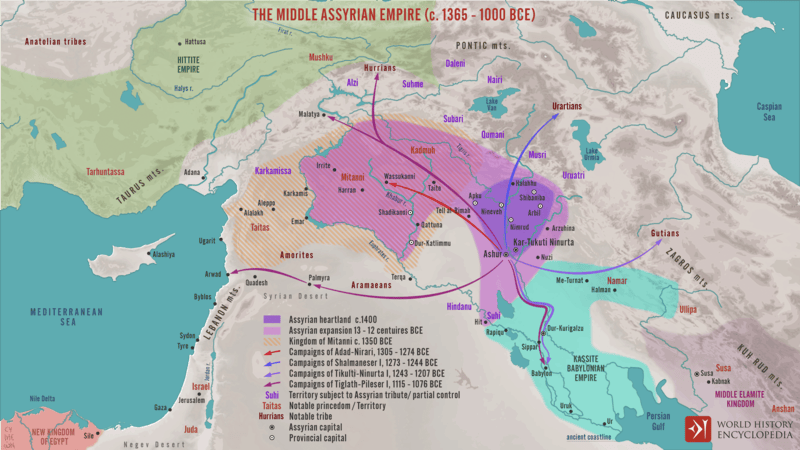
Legacy of the Akkadians
Even though their empire ended, the Akkadians left behind a legacy that influenced future civilizations.
Impact on Later Empires
Later, other civilizations in Mesopotamia, like the Babylonians and Assyrians, followed the example of the Akkadians. They adopted the Akkadian way of governing, their language, and many of their cultural achievements. Because of this, the Akkadians showed future empires how to build and manage their kingdoms. Even today, historians and archaeologists study the Akkadians to learn about the beginnings of empires and human civilization. Their achievements teach us the importance of unity and innovation in creating powerful and lasting empires. The Akkadians left behind a legacy that still shapes how we understand the past.
Conclusion
To sum up, the Akkadians were trailblazers in history. They were the first to unite different city-states into one empire, creating a model for future civilizations. From their rise under Sargon of Akkad to their lasting cultural and political influence, their story is a fascinating part of human history. Learning about the Akkadians helps us understand how early civilizations grew and adapted. All in all, their achievements continue to inspire curiosity and respect for the pioneers of the past.
One Reply to “Akkadians | Explore The First Empire Builders in History”
Comments are closed.

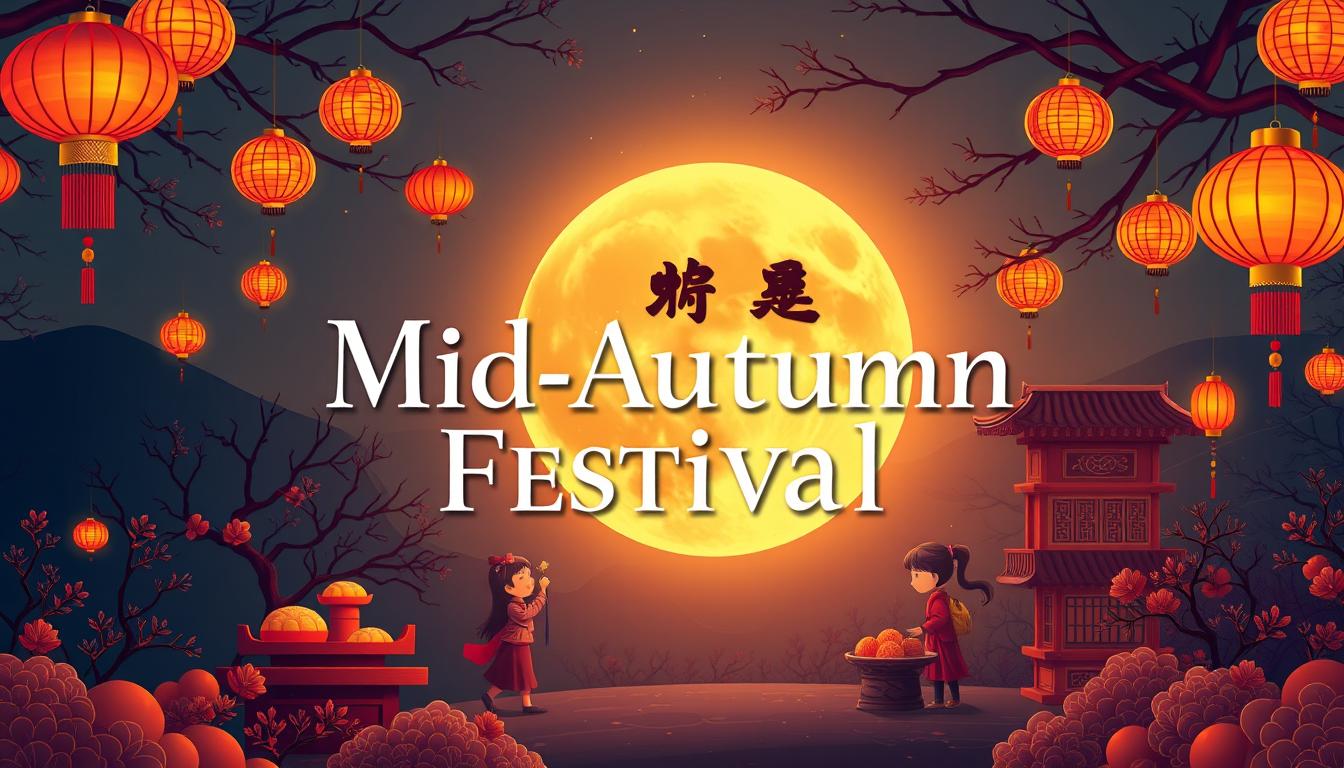


Wow They were really so Intelligent even at that time.